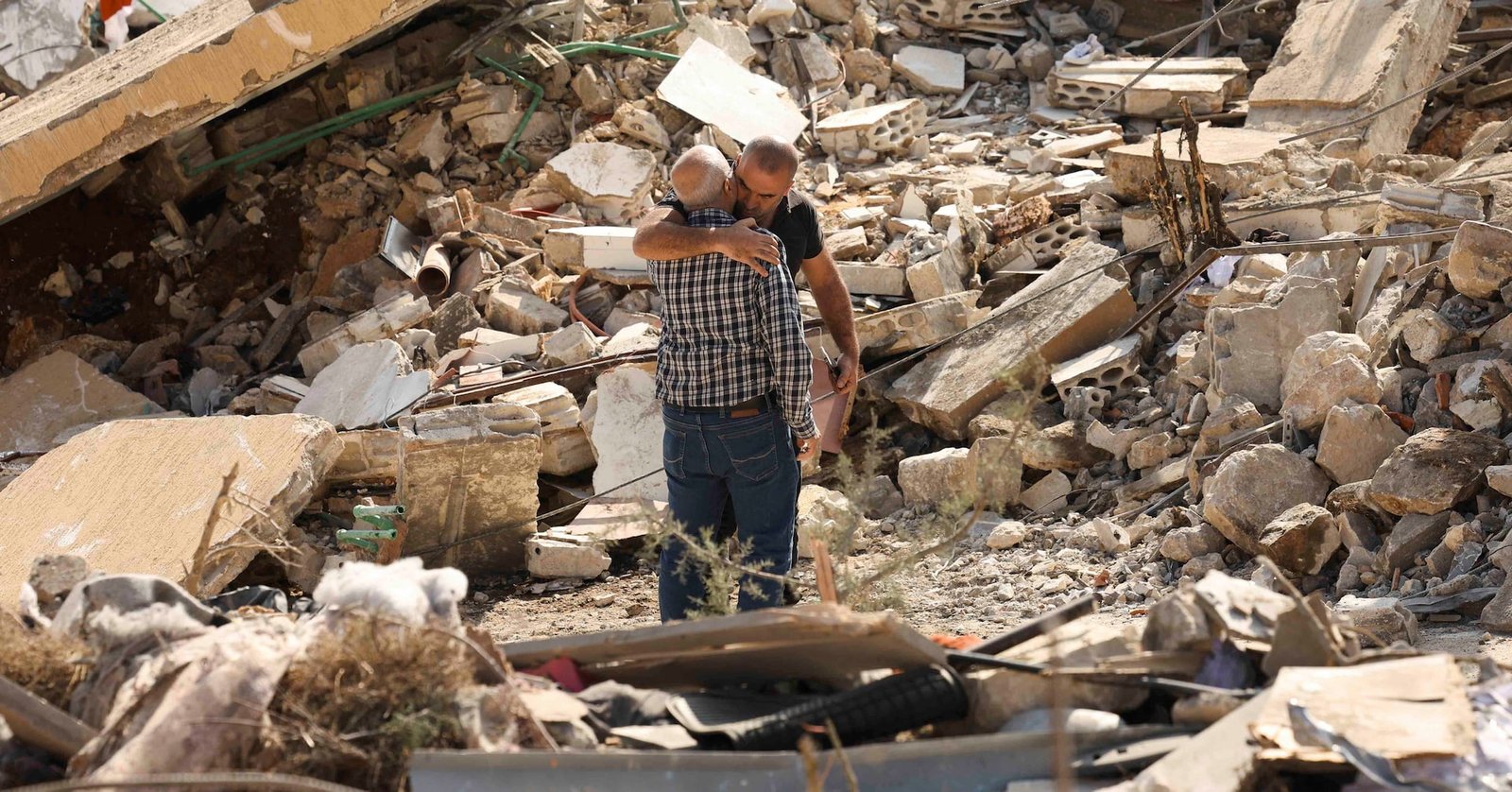Item 1 of 5 People hug as they stand on rubble of damaged buildings in the aftermath of Israeli strikes, amid the ongoing hostilities between Hezbollah and Israeli forces, in Joun village in the Chouf district, Lebanon November 13, 2024. REUTERS/Aziz Taher
[1/5]People hug as they stand on rubble of damaged buildings in the aftermath of Israeli strikes, amid the ongoing hostilities between Hezbollah and Israeli forces, in Joun village in the Chouf district, Lebanon November 13, 2024. REUTERS/Aziz Taher Purchase Licensing Rights, opens new tab
- Lebanon awaiting ‘tangible proposals’, Speaker Berri says
- Israel strikes Beirut’s southern suburbs for second day in a row
- Israeli airstrike kills six people – Lebanese health ministry
BEIRUT/JERUSALEM, Nov 13 (Reuters) – Lebanon is awaiting concrete ceasefire proposals, Parliament Speaker Nabih Berri was quoted as saying on Wednesday, after a senior U.S. official said he saw “a shot” at a truce soon in the conflict between Israel and Hezbollah.
The Israeli military struck the Hezbollah-controlled southern suburbs of Beirut for a second consecutive day, after pounding the area with airstrikes on Tuesday. Smoke rose over Beirut.
An Israeli airstrike in the early hours of Wednesday also killed six people in Aaramoun, in the mountains some 15 km (10 miles) south of Beirut, Lebanon’s health ministry said.
Israel launched a major air and ground offensive against the Iran-backed group Hezbollah in late September after nearly a year of cross-border conflict in parallel with the Gaza war.
White House envoy Amos Hochstein told Axios that he thinks “there is a shot” at a truce in Lebanon soon. “I am hopeful we can get it.”
His comments point to a last-ditch bid by the outgoing administration of U.S. President Joe Biden to secure a Lebanon ceasefire as diplomacy to end the Gaza war appears adrift, with mediator Qatar having suspended its role.
The United States and other world powers say a ceasefire must be based on U.N. Security Council resolution 1701 which ended a war between the sides in 2006. The resolution demands that the areas of south Lebanon near the Israeli border be free of any weapons other than those of the Lebanese state.
Israel long complained it was never implemented, pointing to Hezbollah weapons and fighters at the border. Lebanon in turn accused Israel of violating the resolution, with Israeli warplanes regularly violating its airspace.
Berri, endorsed to negotiate by Hezbollah, told Asharq al-Awsat newspaper that Lebanon had not been informed officially of any new proposals for a ceasefire, which several rounds of U.S.-led diplomacy have failed to secure over the last year.
“What is on the table is only Resolution 1701 and its provisions, which must be implemented and adhered to by both sides, not by the Lebanese side alone,” Berri, who helped negotiate the 2006 truce, told Asharq Al-Awsat newspaper.
Israel wants the right to intervene itself to enforce any ceasefire if it seems it necessary, noting the presence of U.N. peacekeepers in south Lebanon had not stopped Hezbollah from building forces in the area.
ISRAELI WARNING
There were no immediate reports of casualties in the Israeli strikes on Beirut’s southern suburbs, which residents have largely evacuated.
The Israeli military earlier issued a statement on social media saying it would act soon against targets in the area, warning residents they were located near Hezbollah facilities.
On Monday, Israeli Foreign Minister Gideon Saar said there had been “a certain progress” in ceasefire talks over Lebanon, though the main challenge would be enforcement.
Israel’s new Defense Minister Israel Katz said on Monday there would be no ceasefire in Lebanon until Israel achieves its goals there, including disarming Hezbollah and returning evacuated Israelis to their homes in northern Israel.
Israel’s campaign has dealt Hezbollah major blows, killing its leader Sayyed Hassan Nasrallah and other top commanders and pounding the Shi’ite Islamist group’s political and military strongholds across Lebanon.
Since hostilities erupted a year ago, Israeli attacks have killed at least 3,287 people in Lebanon, the majority in the last seven weeks, according to the Lebanese health ministry. Its figures do not distinguish between civilians and combatants.
Hezbollah attacks have killed about 100 civilians and soldiers in northern Israel, the Israeli-occupied Golan Heights, and southern Lebanon over the last year, according to Israel.
A Hezbollah attack on Tuesday killed two people in the city of Nahariya in northern Israel. Hezbollah later claimed responsibility for a drone attack that it said was aimed at a military base east of Nahariya.
Sign up here.
Reporting by Timour Azhari and Riham AlKousaa in Beirut; James Mackenzie in Jerusalem; Clauda Tanios and Tala Ramadan in Dubai; Writing by Tom Perry
Our Standards: The Thomson Reuters Trust Principles., opens new tab
